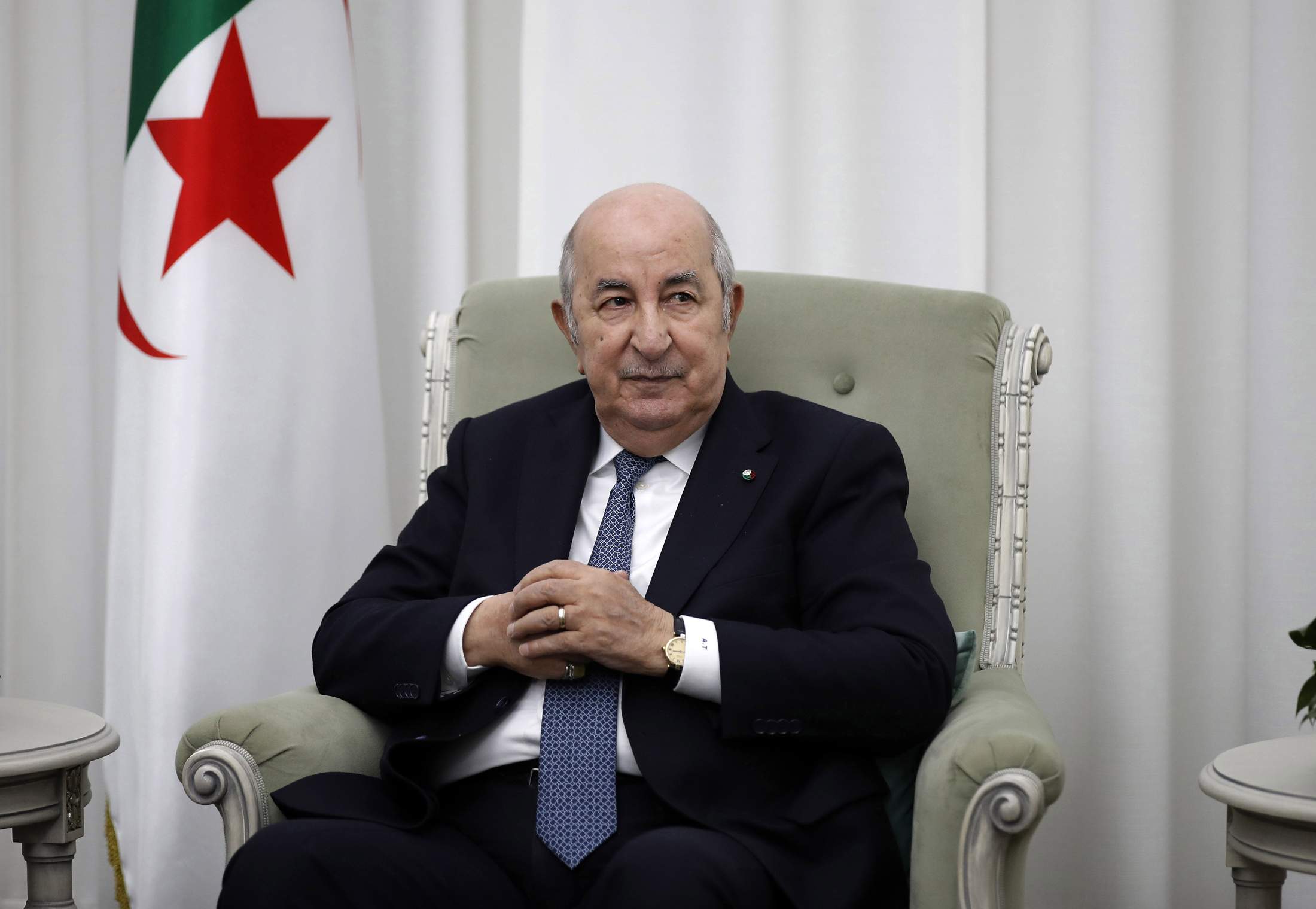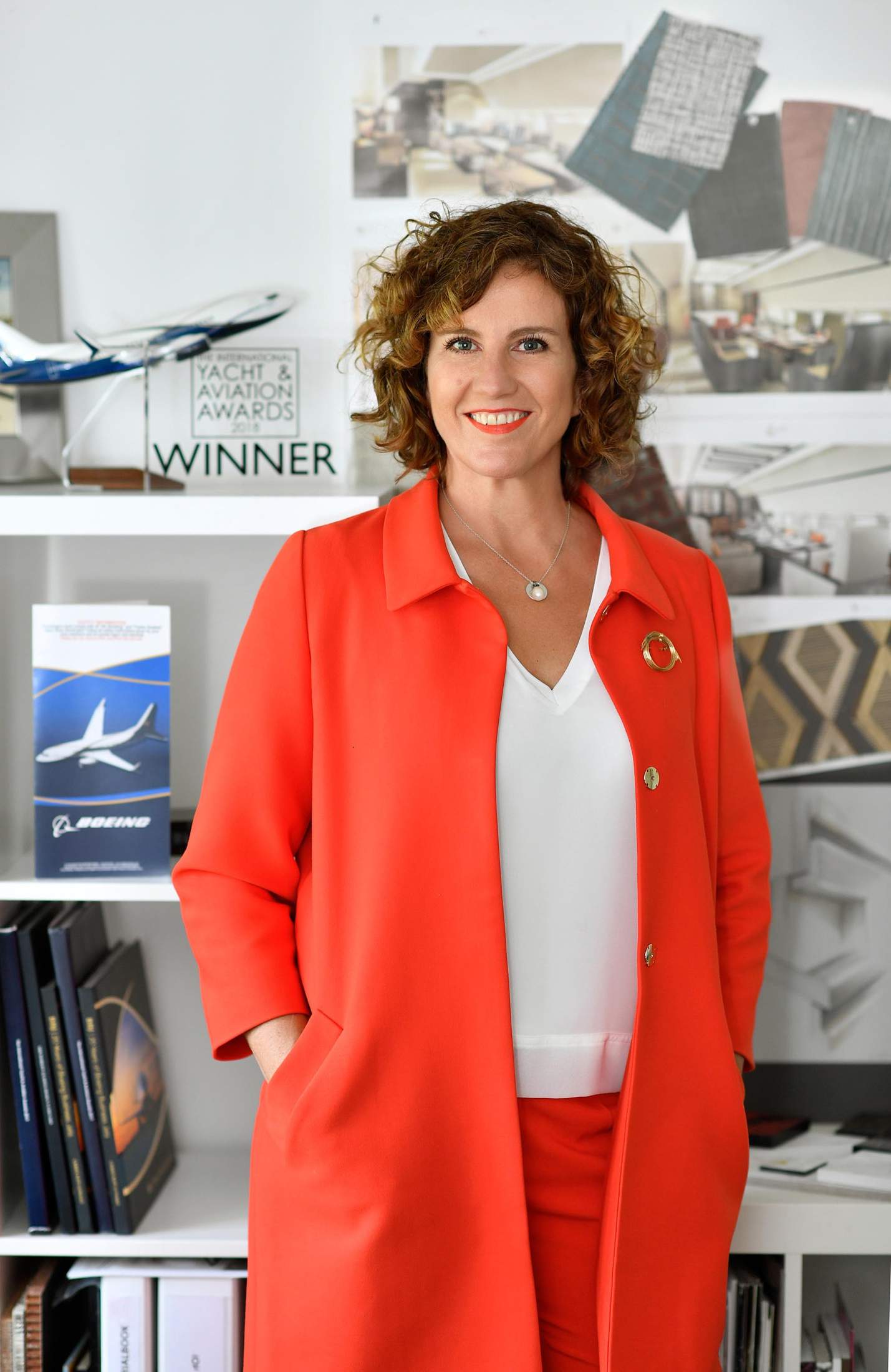September / Global
At the front
What’s on Monocle’s agenda for September, Algeria’s election and the Asian Nato.
how to live: rewarding service
The winner is...
Why it’s time to recognise those who offer the sunny service that makes getting from A to B a joy.
It’s all well and good for an airline to have a dazzling new Business Class product or a rail company to have ultra-silent sleeper carriages but if you don’t have the staff and service to match, there’s little point in bringing anything new to market.
Off the back of the Olympic Games in Paris, I’ve been thinking that perhaps it is time for a global award programme for superior service. Anyone care to partner with us on this sponsoring this venture? While it’s important to recognise athletes, actors and various performing artists, what about an international awards show for the people on the front lines for brands big and small every day, round the clock? Consumers surely spend more time talking about service that’s outstanding, poor and all points in between than they do the person making millions as the over-engineered brand ambassador.
On a recent train ride, the conductor on Rhätische Bahn (a benchmark in our ‘perfect train’ story) between Chur and St Moritz was so good at his job that he surely would have made the shortlist for ‘best performance on a platform and on board in a challenging environment’. A bewildered woman was shown to the correct carriage and her enormous suitcase carried up the stairs. Disoriented Belgians were shown past the dining car and to their seats. Tickets were inspected with efficiency and just the right amount of sunny chatter. This gentleman lifted the entire tone of the journey. Perhaps it’s time to recognise what passes for a warm welcome and help to raise the status of this most essential sector. ––
News splash...
Our correspondents report from Japan, where Tokyo’s Sony landmark is finally replaced with a fresh building, Los Angeles, where luxury retail is making moves on Larchmont Village, and London, where empty office blocks are getting a new lease of life.
tokyo
Sony style
The Sony Building was a Ginza landmark until it was demolished in 2017. The empty space became a temporary urban garden but a new building, Ginza Sony Park, is finally set to open this year. Expectations are high for this hallowed slice of real estate.
london
Second outing
The Canary Wharf Group has unveiled plans for the HSBC tower in London’s business district after the bank moves out in 2026. Large chunks will be removed, making space for terraces and leisure facilities. As cities wonder what to do with empty offices, this approach might just pay off.
los angeles
Retail upgrade
Luxury brands are eyeing up Larchmont Village, a friendly, low-key row of booksellers, clothing shops and bakeries in LA. In August a high-end watch store opened in a restored 1920s shop. It is upping the ante – and the rents – in an area where retail has stayed mostly independent.
Three things you’ll learn
Here are a few takehomes gleaned from reports filed by monocle’s correspondents in this issue. —
1. Big companies are shifting gear with smaller cars
Our Business section has a round-up of the 10 best microcars. With some well-known names such as Fiat joining newcomers including Silence, it’s clear that demand for the nifty vehicles shows no sign of slowing down.
2. Songs can be acts of defiance
Every four years or so, choirs, performers and spectators gather for the week-long Lithuanian Song Celebration in Vilnius and around the country. But as Lithuanians toast the festival’s centenary, a sense of urgency permeates the celebrations. “What we’re seeing in Ukraine – and what we also think in Lithuania – is that a nation that really loves its culture and itself is difficult to defeat,” Saulius Liausa, director of the Lithuania National Culture Centre, tells monocle.
3. A boat can buoy the art world’s bid for accessibility
Led by French entrepreneur and art patron Frédéric Jousset, the Art Explora Foundation has sent out a boat brimming with culture for stop-offs in ports from Venice to Valletta. The strategy has helped to welcome new audiences on board, entertaining them with a below-deck exhibition funded by the Louvre and musical performances. This month’s stop? Morocco’s Tangier.
On the road again

After a deserved summer reset, it’s time to fold up the beach towels. September is a busy month for the monocle team, and here’s what we have planned.
Our fashion director, Natalie Theodosi, and fashion markets editor, Kyoko Tamoto, will hit all the main stops on the fashion-month circuit and report back from Paris to Milan. We’ll have a European presence on the design front, with our associate editor Grace Charlton attending Paris Design Week between 5 and 14 September, and design editor Nic Monisse holding down the fort at the London Design Festival from 14 to 22 September. And we’ll be keeping track of the rail industry at Innotrans, Berlin’s biannual trade fair on transport, from 24 to 27 September. Catch us if you can.
Election watch: Algeria
Date: 7 September
Type: Presidential
Candidates: President Abdelmadjid Tebboune, who has served Algeria since 2019, is seeking re-election. The principal candidates seeking to stop him are Abdelaali Hassani, leader of broadly Islamist party Movement of Society for Peace (msp), and Youcef Aouchiche of the Socialist Forces Front. It is assumed that President Tebboune will win easily, though this is due less to the nation’s gratitude for his sagacious rule than the steps that his authoritarian regime has taken to make life difficult for its opponents.
Issues: The nature of President Tebboune’s governance is the subject of consternation, even if it’s not easy to express. Tebboune (pictured) stared down huge demonstrations in 2021 and has grown more stubborn since. Opposition figures and journalists have been harassed and arrested. And, 13 years since the Arab Spring, much of the discontent that motivated it remains unaddressed here: youth unemployment is about 30 per cent.
Comment: It is five years since mass protests forced out 78-year-old Tebboune’s predecessor, the then 82-year-old Abdelaziz Bouteflika. Algeria’s people deserved better than one elderly autocrat replacing another.


the interrogator
Warja Borges
Founder, Unique Aircraft

Borges holds an engineer’s degree in interior architecture. She worked at German studio Reiner Heim Aircraft Interior Design. In 2010 she founded Unique Aircraft. Working with major companies, Borges has designed all kinds of aircraft from smaller business jets to large Boeing/Airbus-type planes for private clients, governments and heads of state.
What is the typical budget range for the aircraft you work on?
Working on a business jet, clients’ requests are mostly refurbishments. Costs range from €500,000 to €2m, including the outfitting. My core business is one-of-a-kind interiors for large aircraft, planning the interior configuration from scratch. The range is huge, depending on the complexity of the interior, technical requirements and materials used. Starting at about €30m for narrow body, up to €200m for a wide-body aircraft. The main drivers for the budget are the technology and manpower.
What are the usual (and unusual) requests from clients?
A usual request for a Boeing/Airbus-type aircraft would be a main lounge area with seating and dining, ensuite master bedroom, galley and crew area, guest seating or bedroom and an additional lavatory. Sometimes we do get the request to implement some beloved items or features.
What is most important when designing an aircraft’s interior?
The basic is to know the certification regulations and limitations and engineering constraints. The focus is on the passengers, their comfort and needs. With this in mind, my approach is holistic, stimulating senses to create an overall and unique flying experience.
unique-aircraft.com
Letters of interest

As calls for an Asian Nato grow louder, world leaders should study their history books to avoid repeating the mistakes of the past. Here’s a quick test. First question: Do you know what Seato stands for? If you said Southeast Asia Treaty Organisation, pat yourself on the back. You’re either a Vietnam War veteran, a baby boomer or a student of political science, or perhaps all three. Acronyms are a dime a dozen in international relations but Seato dropped out of the lexicon in the late 1970s when the Bangkok-based multilateral organisation was dissolved. The anti-communist defence organisation made up of Thailand, Philippines, Pakistan, the US, UK, France, Australia and New Zealand was Asia’s Cold War equivalent to Nato, albeit a much looser alliance. Seato unravelled soon after Washington pulled out of Saigon in 1975. Thai diplomat Pote Sarasin was Seato’s first secretary-general and some of Thailand’s most notable envoys got their first taste of multilateral diplomacy when assigned to the Seato desk. Though the organisation’s HQ is no more, replaced in the 1990s by Thailand’s Ministry of Foreign Affairs, Seato has a legacy. The Asian Institute of Technology (ait), a postgraduate university north of Bangkok, was founded in the late 1950s as the Seato Graduate School of Engineering. Ambassadors continue to sit on the governing board of the university as part of their posting to Bangkok, though today’s roll call is more ideologically inclusive: France and Canada partake alongside China and Vietnam. In another sign of the times, AIT launched a Belt & Road Centre in 2019. A battle of ideas in classrooms and boardrooms certainly beats war in the seas and straits. Next question. What is Anzus? No, not Aukus. Anzus.


